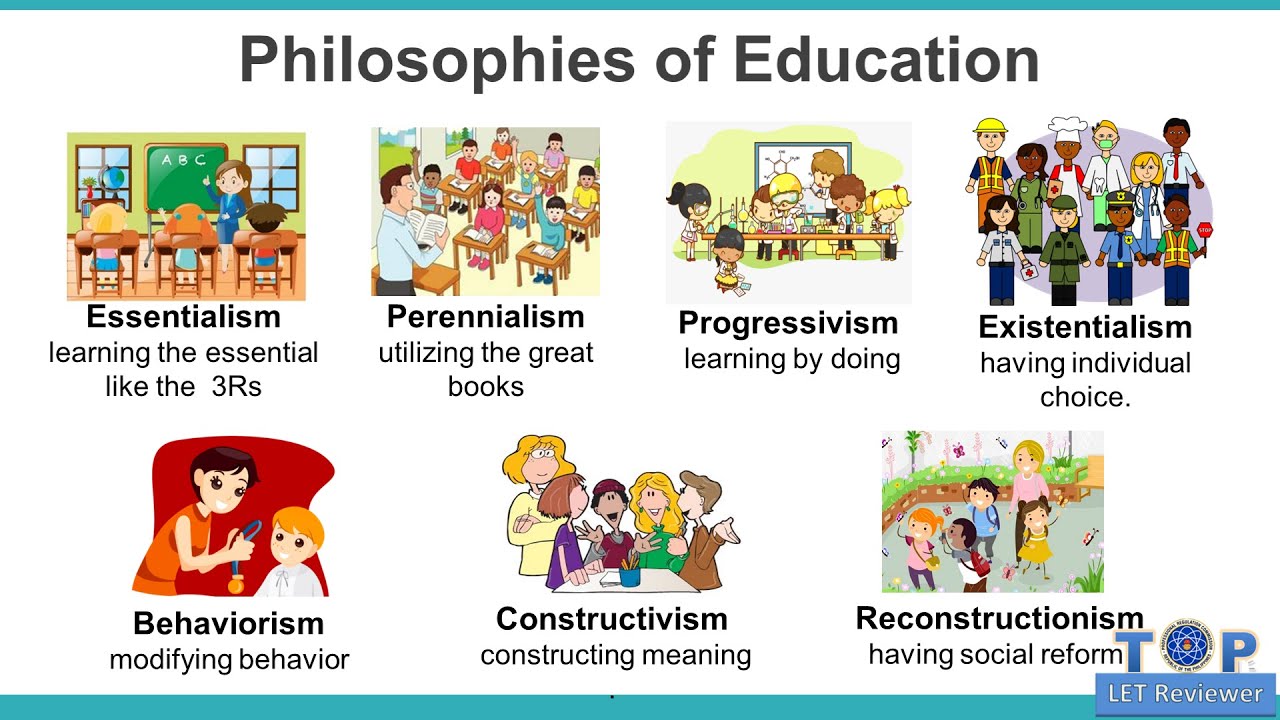Philosophy of education is an area of applied philosophy that studies the aims and nature of education. It examines various educational theories, their presuppositions, and the arguments in favor and against each one. As a discipline, it has an important place in education today. The goal of this discipline is to improve the quality of education.
Paulo Freire
Freire’s philosophy of education focuses on social justice. For him, education is an ontological vocation, a continual struggle toward liberation. It should create a critical consciousness that propels the subject into concrete praxis, undressing social formations and structures.
Freire’s philosophy of education begins with a fundamental love for the poor and a profound humility before them. This humility enables the educator and student to form a deep reciprocal trust. Through this relationship, education becomes a socially relevant, dialogical, reflexive exchange. Though it begins with an ideal of freedom that exists outside of man, Freire’s ideas have helped improve the lives of oppressed people throughout the world.
Freire’s philosophy of education also encourages teachers and students to unlearn privileges. Instead of imposing their own views or ideas onto students, teachers should engage in dialogue with those who experience oppression. This way, students can critically interrogate their experiences. They can also recognize that they are themselves subjects of knowledge.
Freire’s philosophy of education is controversial. Its pedagogical ideas have been criticized by conservatives and the left. Some Marxists have questioned Freire’s work for its utopian and demagogic tendencies. Others have accused Freire of being a “demagog” for the upper class, and feminists have attacked him for failing to consider the radical differences between oppression and freedom.
William Heard Kilpatrick
Kilpatrick argued that the essence of education was the development of human cognitive and social capacities through meaningful experiences. He rejected the prevalent view of education that focused on distant knowledge, disconnected lessons, examinations, and standardization, and discounted the development of genuine understanding. By emphasizing meaningful experiences and a practical approach, Kilpatrick transformed public school classrooms.
Kilpatrick spent most of his professional career teaching at Teachers College, Columbia University. There, he taught history of education and earned his doctorate. His dissertation focused on colonial Dutch schools in New York. After graduation, Kilpatrick began a long and distinguished career at the university. He initially served as a part-time administrator and history of education instructor, but soon became a full-time professor of philosophy of education.
Kilpatrick’s influence on American education is extensive, extending beyond the academic realm. He taught more than three thousand students at Teachers College and lectured at many other universities. He later married his former student Marion Ostrander, and died in New York City on February 13, 1965.
Kilpatrick’s philosophy of education has been influential in shaping progressive education. His ideas on project-based learning, curriculum integration, and whole child education are still resonant in contemporary debates on educational reform. Beineke’s biography gives vivid accounts of these debates and includes Kilpatrick’s own diaries.
Nancy Cartwright
Nancy Cartwright is an American philosopher who has specialized in the natural and social sciences. She studied at the Stanford University and has also taught philosophy at LSE and Durham, and she has received honorary degrees from Southern Methodist University and the University of St Andrews. Her work has influenced the field of philosophy of science, especially in the area of causality and laws of nature.
She is a member of the American Academy of Arts and Sciences, a MacArthur Fellow, and a Fellow of the British Academy. She holds visiting positions at several universities, including the University of Maryland, the University of Chicago, and the London School of Economics. She also serves as the co-director of the Centre for Humanities Engaging Science and Society at Durham University.
Nancy Cartwright is a professor of philosophy at the University of Durham and the University of California, San Diego. She is also a past president of the American Philosophical Association, Pacific Division. Her work has had a profound impact on science, but she has not published a complete systematic exposition of her philosophy. In this volume, she examines some of the questions raised by the philosophy of science.
Cartwright’s “capacities” differ from those of Millian tendencies, which remain constant despite many interfering causes. These tendencies always make a characteristic contribution, but they are not inherently measurable.
Analytical philosophy of education
Analytical philosophy of education is a method of philosophical inquiry into education. It seeks to define education and its various concepts, explore educational models, and analyze arguments about education. Generally speaking, it is a method of inquiry that is grounded in the study of human beings and their mental capacities.
Analytical philosophy of education began as a critical study of educational concepts and ideas in the 1960s. During this time, it became more than just an analysis of educational theories. For instance, it included the work of child-centred thinkers like Dearden and Hirst, and de-gutted the Harvard Report on general education.
As the discipline developed, the relationship between philosophy and education changed dramatically. In part, these changes were a result of internal developments within philosophy and of political changes in higher education. While the analytic project has received its fair share of criticism, the philosophical questions it addresses continue to play an important role in all of our work as researchers and teachers.
Analytical philosophy of education has undergone a major overhaul in the English-speaking world. During the 1960s, it became the dominant philosophical approach. This book examines the role of philosophy in educational policy and offers a fresh, alternative interpretation of the field.
Social epistemology
Social epistemology is a branch of philosophy that deals with the nature of knowledge. Social epistemologists study the nature of knowledge and how it is distributed throughout society. Some focus on science and technology, while others study ordinary knowledge. Still others, like feminist epistemologists, study how gender affects assumptions and methodologies in various fields. They also consider the role of social epistemology in education.
Epistemology has been strongly individualistic until recently. The study of doxastic attitudes of individuals was central to its focus. But today, social epistemology focuses on how the epistemic behavior of groups can affect the quality of knowledge. In recent years, researchers have used formal methods to investigate the epistemic effects of group interactions.
The social epistemological approach is distinct from the individualistic approach of Descartes and Locke. It advances the idea that people can acquire knowledge from others. To do this, the investigator must first establish the existence of other individuals, and then use individual resources to gather information about them.
Another approach is conciliationism. This teaches that individuals must obeise to peer belief. Proponents include Richard Feldman and Adam Elga.
Indoctrination
The word indoctrination comes from the Latin word doctrina, which means “to teach.” It is defined as “the process of inculcating a person’s beliefs or values without asking them to be questionable.” Indoctrination is a problem in philosophy of education because it hinders critical thinking and questioning.
Educators need to consider philosophical concepts and principles to guide their work. They must seek to find general and universal truths, such as ethical principles, human concerns, and classical literature. They must also be taught to master logically distinct conceptual schemes that develop qualities of mind. In other words, education should foster critical thinking, not teach students to play games.
Philosophers of education have written on a variety of subjects. They have addressed topics like play, nature, instinct, democracy, freedom, and social roles. They have also addressed topics such as the importance of moral values and the nature of education. The goal of education should be to develop the whole person, not just the individual.
Philosophers of education can also be viewed from a different perspective. Using this term, they can also refer to a phenomenon similar to Reapers’ energy field, which influences the minds of organic beings within its range. Similarly, indoctrination is the opposite of learning and forgetting. In essence, indoctrination is propaganda: the dissemination of information with the intention of influencing public opinion.

